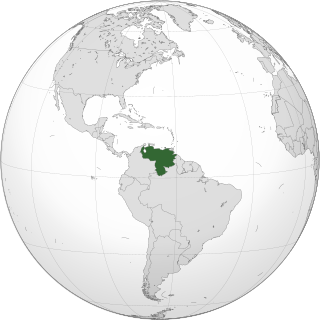
Lesbian, gay, bisexual, and transgender (LGBT) people in Venezuela face legal challenges not experienced by non-LGBT residents. Both male and female types of same-sex sexual activity are legal in Venezuela, but same-sex couples and households headed by same-sex couples are not eligible for the same legal protections available to opposite-sex married couples. Also, same-sex marriage and de facto unions are constitutionally banned since 1999.
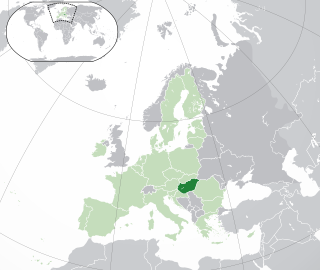
Lesbian, gay, bisexual, and transgender (LGBT) people in Hungary face legal and social challenges not experienced by non-LGBT residents. Homosexuality is legal in Hungary for both men and women. Discrimination on the basis of sexual orientation and sex is banned in the country. However, households headed by same-sex couples are not eligible for all of the same legal rights available to heterosexual married couples. Registered partnership for same-sex couples was legalised in 2009, but same-sex marriage remains banned. The Hungarian government has passed legislation that restricts the civil rights of LGBT Hungarians – such as ending legal recognition of transgender Hungarians and banning LGBT content and displays for minors. This trend continues under the Fidesz government of Viktor Orbán. In June 2021, Hungary passed an anti-LGBT law on banning "homosexual and transexual propaganda" effective since 1 July. The law has been condemned by seventeen member states of the European Union. In July 2020, the European Commission started legal action against Hungary and Poland for violations of fundamental rights of LGBTQI people, stating: "Europe will never allow parts of our society to be stigmatized."

Lesbian, gay, bisexual, and transgender (LGBT) rights in Cyprus have evolved in recent years, but LGBT people still face legal challenges not experienced by non-LGBT residents. Both male and female expressions of same-sex sexual activity were decriminalised in 1998, and civil unions which grant several of the rights and benefits of marriage have been legal since December 2015. Conversion therapy was banned in Cyprus in May 2023. However, adoption rights in Cyprus are reserved for heterosexual couples only.

Lesbian, gay, bisexual and transgender people (LGBT) in the Philippines face legal challenges not faced by non-LGBT people, with numerous anti-discrimination legislations, bills and laws that are struggling to be passed on a national level to protect LGBT rights nationwide, with some parts of the country only existing on a local government level. LGBT individuals in the Philippines are often faced with disadvantages and difficulties in acquiring equal rights within the country. They also have a higher rate of suicide and suicide ideation compared to their heterosexual counterparts.

Lesbian, gay, bisexual, and transgender (LGBT) rights in Andorra have advanced significantly in the 21st century, and are now considered generally progressive. Civil unions, which grant all the benefits of marriage, have been recognized since 2014, and discrimination on the basis of sexual orientation is constitutionally banned. The General Council passed a bill on 21 July 2022 that would legalize same-sex marriage in 2023, and convert all civil unions into civil marriage. In September 2023, Xavier Espot Zamora, the Prime Minister of Andorra, officially came out as homosexual.

Lesbian, gay, bisexual, and transgender (LGBT) people in Armenia face legal and social challenges not experienced by non-LGBT residents, due in part to the lack of laws prohibiting discrimination on the grounds of sexual orientation and gender identity and in part to prevailing negative attitudes about LGBT persons throughout society.

Lesbian, gay, bisexual, and transgender (LGBT) people in Azerbaijan face significant challenges not experienced by non-LGBT residents. Same-sex sexual activity has been legal in Azerbaijan since 1 September 2000. Nonetheless, discrimination on the basis of sexual orientation and gender identity are not banned in the country and same-sex marriage is not recognized.
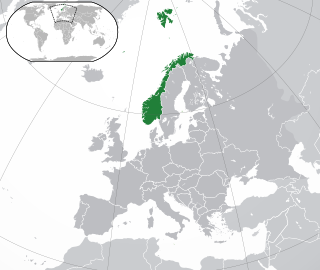
Lesbian, gay, bisexual, and transgender (LGBT) people in Norway have the same legal rights as non-LGBT people. In 1981, Norway became one of the first countries in the world to enact an anti-discrimination law explicitly including sexual orientation. Same-sex marriage, adoption, and assisted insemination treatments for lesbian couples have been legal since 2009. In 2016, Norway became the fourth country in Europe to pass a law allowing the change of legal sex for transgender people based on self-determination. On 1 January 2024, conversion therapy became legally banned within Norway.

Lesbian, gay, bisexual, and transgender (LGBT) rights in Switzerland are progressive by world standards. Social attitudes and the legal situation have liberalised at an increasing pace since the 1940s, in parallel to the situation in Europe and the Western world more generally. Legislation providing for same-sex marriage, same-sex adoption, and IVF access was accepted by 64% of voters in a referendum on 26 September 2021, and entered into force on 1 July 2022.
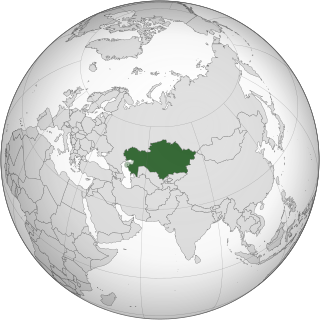
Lesbian, gay, bisexual, and transgender (LGBT) people in Kazakhstan face significant challenges not experienced by non-LGBT residents. Both male and female kinds of same-sex sexual activity are legal in Kazakhstan, but same-sex couples and households headed by same-sex couples are not eligible for the same legal protections available to opposite-sex married couples.

Lesbian, gay, bisexual, and transgender (LGBT) rights in Uruguay rank among the highest in the world. Same-sex sexual activity has been legal with an equal age of consent since 1934. Anti-discrimination laws protecting LGBT people have been in place since 2004. Civil unions for same-sex couples have been allowed since 2008 and same-sex marriages since 2013, in accordance with the nation's same-sex marriage law passed in early 2013. Additionally, same-sex couples have been allowed to jointly adopt since 2009 and gays, lesbians and bisexuals are allowed to serve openly in the military. Finally, in 2018, a new law guaranteed the human rights of the trans population.

Lesbian, gay, bisexual, and transgender (LGBT) rights in India have expanded in the 21st century, though much of India's advancements on LGBT rights have come from the judiciary and not the legislature. Indian LGBT citizens still face social and legal difficulties not experienced by non-LGBT people.

Lesbian, gay, bisexual, and transgender (LGBT) people in Rwanda face legal challenges not experienced by non-LGBT residents. While neither homosexuality nor homosexual acts are illegal, homosexuality is considered a taboo topic, and there is no significant public discussion of this issue in any region of the country and LGBT people still face stigmatization among the broader population. No anti-discrimination laws are afforded to LGBT citizens, and same-sex marriages are not recognized by the state, as the Constitution of Rwanda provides that "[o]nly civil monogamous marriage between a man and a woman is recognized". LGBT Rwandans have reported being harassed, blackmailed, and even arrested by the police under various laws dealing with public order and morality.

Lesbian, gay, bisexual, transgender, intersex, non-binary and otherwise queer, non-cisgender, non-heterosexual citizens of El Salvador face considerable legal and social challenges not experienced by fellow heterosexual, cisgender Salvadorans. While same-sex sexual activity between all genders is legal in the country, same-sex marriage is not recognized; thus, same-sex couples—and households headed by same-sex couples—are not eligible for the same legal benefits provided to heterosexual married couples.
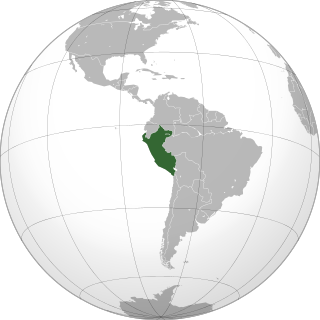
Lesbian, gay, bisexual, and transgender (LGBT) people in Peru face some legal challenges not experienced by non-LGBT residents. Same-sex sexual activity among consenting adults is legal. However, households headed by same-sex couples are not eligible for the same legal protections available to opposite-sex couples.

Lesbian, gay, bisexual, and transgender (LGBT) rights in Bolivia have expanded significantly in the 21st century. Both male and female same-sex sexual activity and same-sex civil unions are legal in Bolivia. The Bolivian Constitution bans discrimination on the basis of sexual orientation and gender identity. In 2016, Bolivia passed a comprehensive gender identity law, seen as one of the most progressive laws relating to transgender people in the world.

Lesbian, gay, bisexual, and transgender (LGBT) people in Guatemala face legal challenges not experienced by non-LGBT residents. Both male and female forms of same-sex sexual activity are legal in Guatemala.
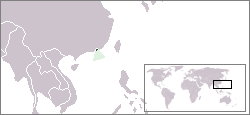
Lesbian, gay, bisexual, and transgender (LGBT) people in Hong Kong may face legal challenges not experienced by non-LGBT residents.

Lesbian, gay, bisexual, and transgender (LGBT) people in the U.S. state of Georgia enjoy most of the same rights and liberties as non-LGBT people. LGBT rights in the state have been a recent occurrence, with most improvements occurring from the 2010s onward. Same-sex sexual activity has been legal since 1998, although the state legislature has not repealed its sodomy law. Same-sex marriage has been legal in the state since 2015, in accordance with Obergefell v. Hodges. In addition, the state's largest city Atlanta, has a vibrant LGBT community and holds the biggest Pride parade in the Southeast. The state's hate crime laws, effective since June 26, 2020, explicitly include sexual orientation.

In the U.S. Virgin Islands, Lesbian, gay, bisexual, and transgender (LGBT) rights have evolved substantially in recent years. Same-sex sexual activity has been legal since 1985. The region also provides explicit legal protections against discrimination for LGBT residents since December 2022. Following the Supreme Court's ruling in Obergefell v. Hodges on June 26, 2015, which found the denial of marriage rights to same-sex couples unconstitutional, same-sex marriage became legal in the islands.






















